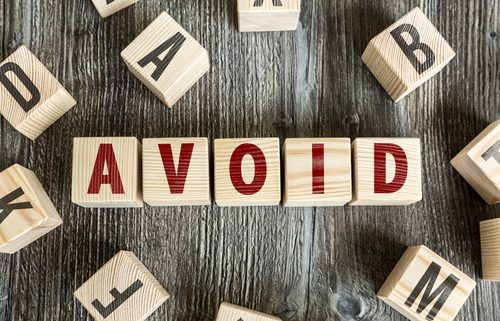Don’t make these common Self-Directed IRA beneficiary Mistakes
Naming beneficiaries is a critical step in any financial plan. Get it right and your financial legacy and your skilled, patient Self-Directed IRA investing and other saving, investing and insurance decisions can be a great blessing to loved ones and help you successfully pass on a financial legacy to your heirs. Get it wrong and you could cause untold needless heartache, conflict, labor and tax consequences for your family members and loved ones.
Here are some of the most common mistakes we see when it comes to beneficiary designation and probate.
1.) Failing to prepare Self-Directed IRA Self-Directed IRA investors frequently choose unusual and even esoteric investments. Self-Directed IRA investors are often very sophisticated, experienced investors or have experience specific to an industry or asset class heavily represented in their Self-Directed IRAs.
The ability to invest in alternative asset classes is one of the great benefits of Self-Directed IRA investing. But it’s also a problem, because often times, heirs invest assets that they do not know what to do with. They may not know how to sell an oil and gas investment, for example, because they do not know the market for it. Holding it may not be appropriate for their portfolio – but because there’s no built-in secondary market for it like there is for securities bought over a stock exchange or via a broker, they may not be able to sell it, without taking a huge haircut.
Sometimes an heir may inherit a Self-Directed Real Estate IRA property – but not everyone is equipped to be a landlord. Even if they are, they could be far away, and unable to monitor their Real Estate IRA properties.
Also, sometimes heirs may inherit a Self-Directed Real Estate IRA, but cause problems for themselves when they move into the property for themselves or spend their own money in repairing or remodeling it, or in marketing it for lease or for sale. They simply do not know the prohibited transaction rules that are old hat for experienced Self-Directed IRA owners.
If you have a Self-Directed IRA, be sure your beneficiary knows what to do with it when they inherit it – and what not to do.
2.) Not naming a beneficiary. The failure to name a beneficiary at all can be a big mistake. If you do not name a beneficiary and are not married, the Self-Directed IRA must be considered a part of your estate – which means it goes through probate. A team of lawyers will then distribute your retirement assets to the IRS, state and local revenue departments and every creditor who shows up claiming you owed them money. And, of course, the probate lawyers won’t forget to pay themselves out of your estate proceeds as well.
And they will take their sweet time about it – sitting on the assets for months before releasing them to family members – even those who may be financially dependent on you.
If you list your beneficiaries on retirement accounts and life insurance policies by name, however, they will pass directly to your heirs in a few days under contract law, not probate law. This is far, far preferable. To everyone except the IRS, your creditors and the probate lawyers, that is!
3.) Leaving money directly to the wrong people. In some circumstances, direct inheritance of large sums of money can cause major problems. For example:
Special needs individuals. Many handicapped individuals rely on Medicaid for health care and may rely on food stamps and other need-based aid programs. Inheriting money directly could cause them to lose access to these critical programs. They may be forced to spend down their inheritance before they can qualify again.
If you have family members or other loved ones in this circumstance, speak with a financial planning professional or trust attorney about creating a special needs trust. Then you can name the trust as beneficiary instead of the handicapped individual – and keep the assets out of their name. The trustee needs to take care not to release too much income so as not to accidentally disqualify the beneficiary from aid.
Spendthrifts and debtors. Some people we love are just exceptionally poor at handling money. Or they may have a special circumstance like a current judgment against them, or a pending lawsuit that may be reasonably expected to result in a judgment, and then the attachment of any assets they may have. Again, these people should not be named as direct beneficiaries. If you want to leave money to them, do it via a trust – and name a reliable trustee who will release assets to them as needed, but not to their creditors.
Minors. Minors also cannot inherit money directly. Instead, you should create a trust for their benefit, too – or use your state’s UGMA or UTMA rules. And name a reliable and responsible beneficiary until the minor reaches the age of majority.
Creating your own trust allows you to place some conditions on the inheritance, such as enrollment in school, graduation, remaining drug-free, avoiding a criminal record, etc.
Either way, the right trustee is not necessarily the child’s parent or guardian. In fact, it often is not.
Interested in learning more about Self-Directed IRAs? Contact American IRA, LLC at 866-7500-IRA (472) for a free consultation. Download our free guides or visit us online at www.AmericanIRA.com.







